Yukhoe with Rice Paper Chips – Easy Korean Beef Tartare
Today, I’ll show you how to make Yukhoe 육회, the Korean beef tartare at home. We’ll also pair it with some crispy rice paper chips for the perfect texture. Now you can recreate that authentic flavor you’d find at a restaurant in Seoul, right in your own kitchen.
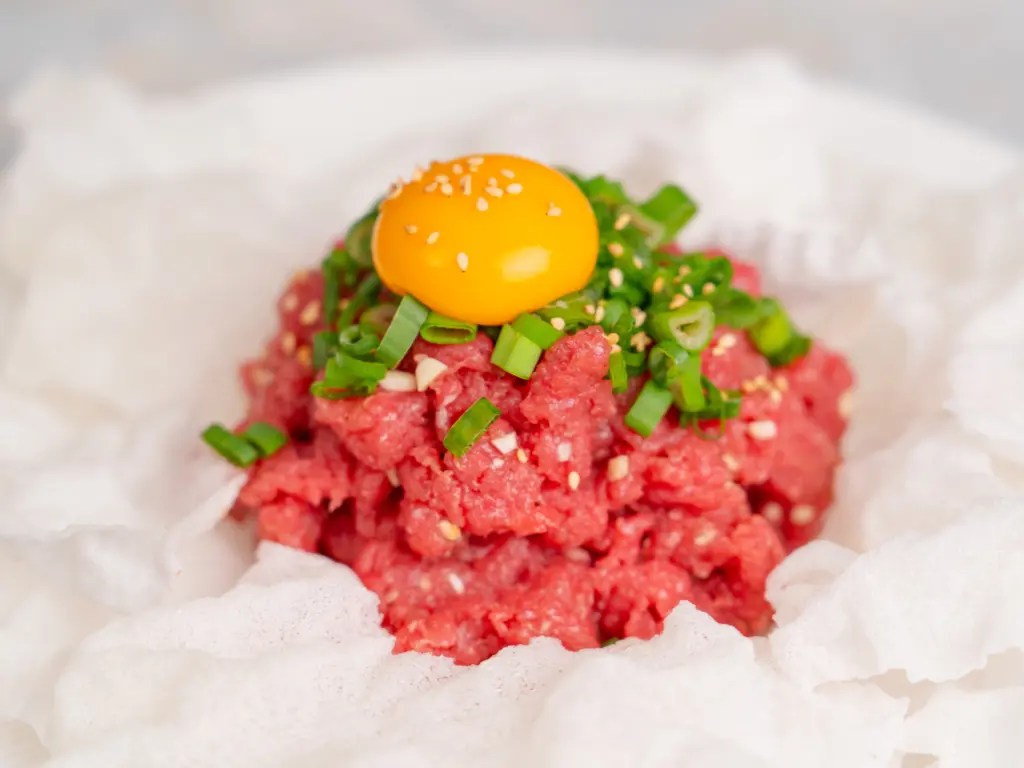
What is Yukhoe?
Yukhoe literally means “meat” (yuk) + “raw” (hoe), and it’s often called the Korean-style beef tartare. It’s made by thinly slicing or finely julienning fresh raw beef that’s safe to eat, then mixing it with a sweet and savory seasoning. Sometimes it’s served without seasoning — in that case, it’s called Yuk Sashimi.
While Yukhoe can be enjoyed as a side dish before grilled meat, it’s most commonly served as anju, a Korean term for food that’s paired with alcohol.
Is It Safe to Eat Raw Beef?
Yes, eating raw beef is possible — just like Western-style steak tartare or carpaccio. The key is using very fresh, high-quality beef.
If you’re buying from a butcher, ask for recently butchered beef and mention that you’ll be eating it raw.
At grocery stores, look for beef labeled specifically for tartare. Alternatively, use beef that was freshly butchered and is safe for raw consumption.
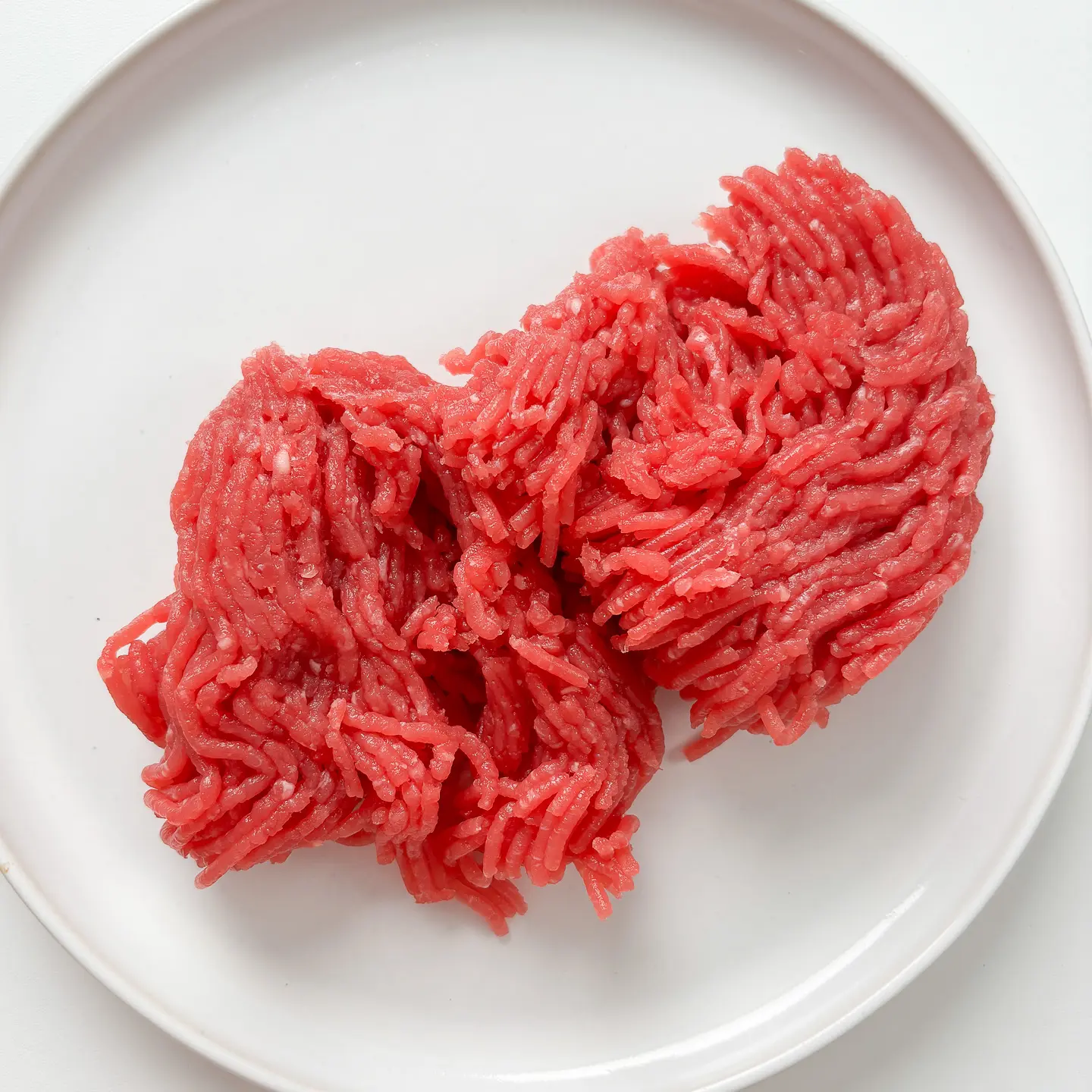
What Meat to Use?
In Korea, the most common cut of meat used for yukhoe is top round, also known as “udunsal.” This cut comes from the inner thigh of the cow. Since this is a part that doesn’t move much, the meat is tender. It’s also very lean, making it perfect for raw dishes like yukhoe.
You can buy a whole piece of top round and slice it thinly by hand. Today, however, I used ground beef. In Belgium, where I live, supermarkets sell very fresh ground beef labeled “American,” which is specifically intended for tartare. If you use this kind of beef, you don’t need to slice anything; just mix in the sauce, and you’re done! This makes the whole process super quick and easy.
What Does Yukhoe Taste Like?
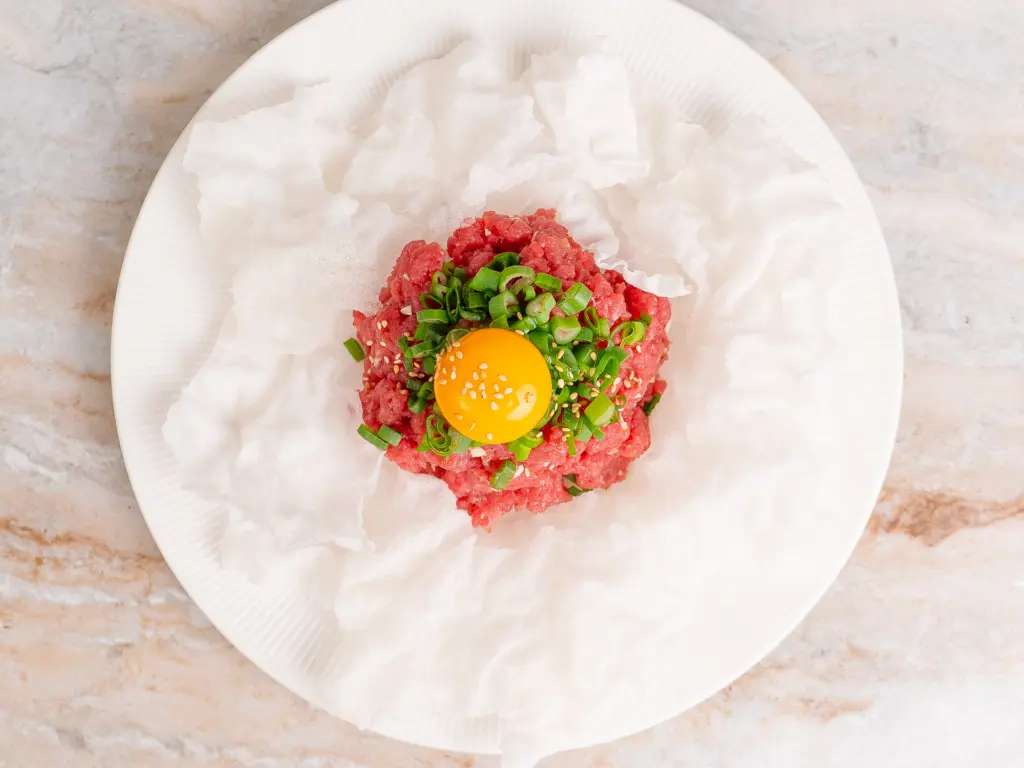
Yukhoe has a savory-sweet flavor. It’s seasoned with salt for a bit of saltiness and sugar for a noticeable sweetness. The rich aroma of toasted sesame oil really stands out, and when you mix it with the egg yolk, it becomes extra nutty and creamy.
Depending on the recipe, some restaurants add soy sauce or gochujang (gochujang yukhoe), which can make the dish saltier or slightly spicier. Each version brings out a different personality in the dish.
What’s the Difference Between Yukhoe and Steak Tartare?
Western-style steak tartare is usually seasoned with just salt and pepper, and often includes ingredients like onion, garlic, and capers. It’s typically mixed with olive oil and topped with a raw egg yolk.
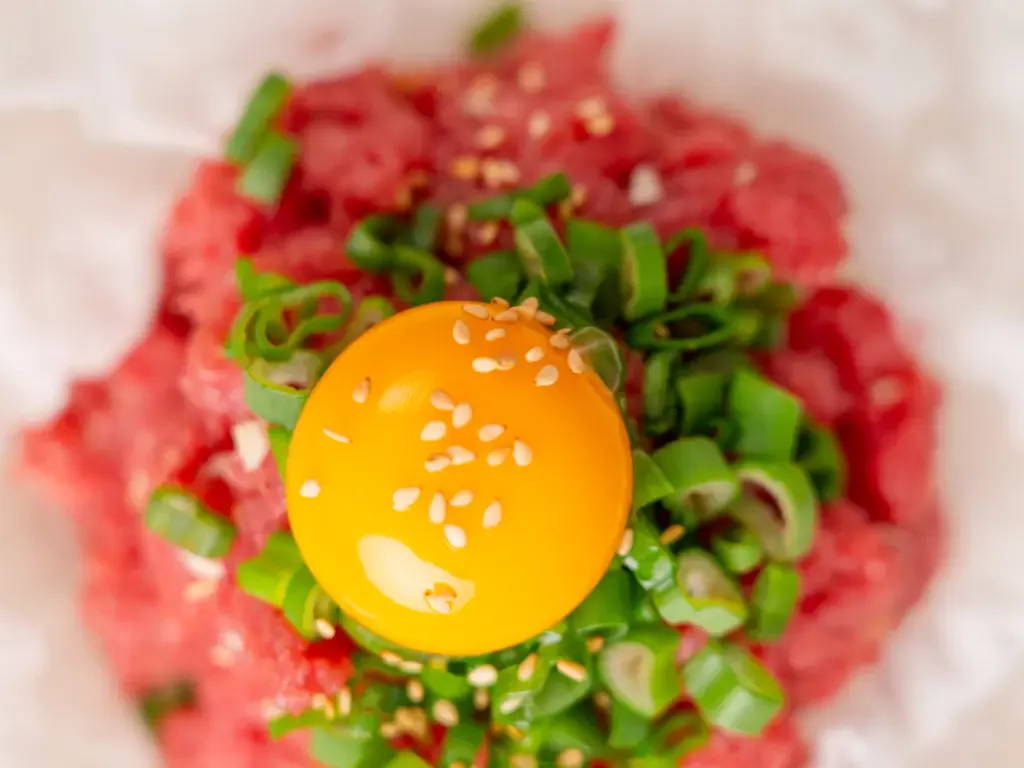
In contrast, Korean Yukhoe includes salt and pepper, but also adds sugar, giving it a noticeable sweetness. One of the most distinct features is the use of toasted sesame oil, which gives it a rich, nutty aroma that feels very traditionally Korean.
Sometimes, Korean pear slices are added for a refreshing crunch, or it may be served with raw octopus (san-nakji) for extra texture — a combination made famous by the dish called Yukhoe Nakji Tangtangi, especially popular at Gwangjang Market in Seoul.
Specialty of This Recipe
Most Yukhoe recipes include Korean pear, which adds a refreshing crunch and natural sweetness that perfectly complements the tender beef.
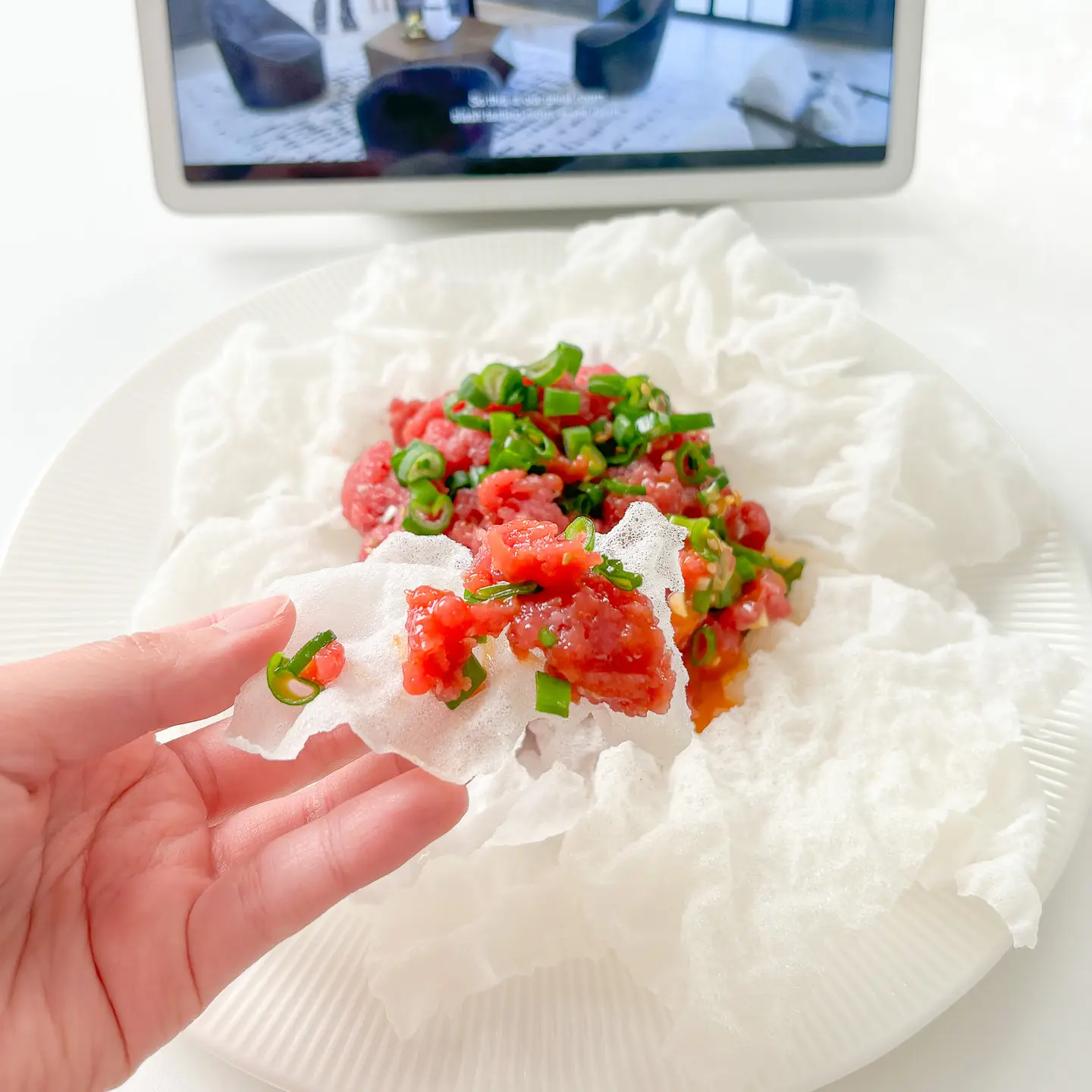
Today, I’m making Yukhoe inspired by a dish I loved at a Korean restaurant. Instead of pear, they topped it with crispy rice paper chips, adding a crunchy texture that pairs amazingly well with the raw beef. This makes it a perfect recipe for those living in countries where Asian pears are hard to find.
Do you have leftover rice paper? Don’t throw it away! You can use it to make a delicious cheese tteokbokki by rolling cheese inside rice paper. This low-carb recipe is popular among Koreans who want to enjoy tasty food while watching their carbs.
Cheese Rice Paper Tteokbokki for Weight Loss
Ingredients
Yukhoe ingredients are really simple. Today, I’m also keeping the seasoning super basic—because sometimes, the basics are the best.
- Ground Beef: Make sure to buy very fresh beef suitable for tartare or raw consumption.
- Basic Seasoning: Salt, pepper, sugar, and toasted sesame oil.
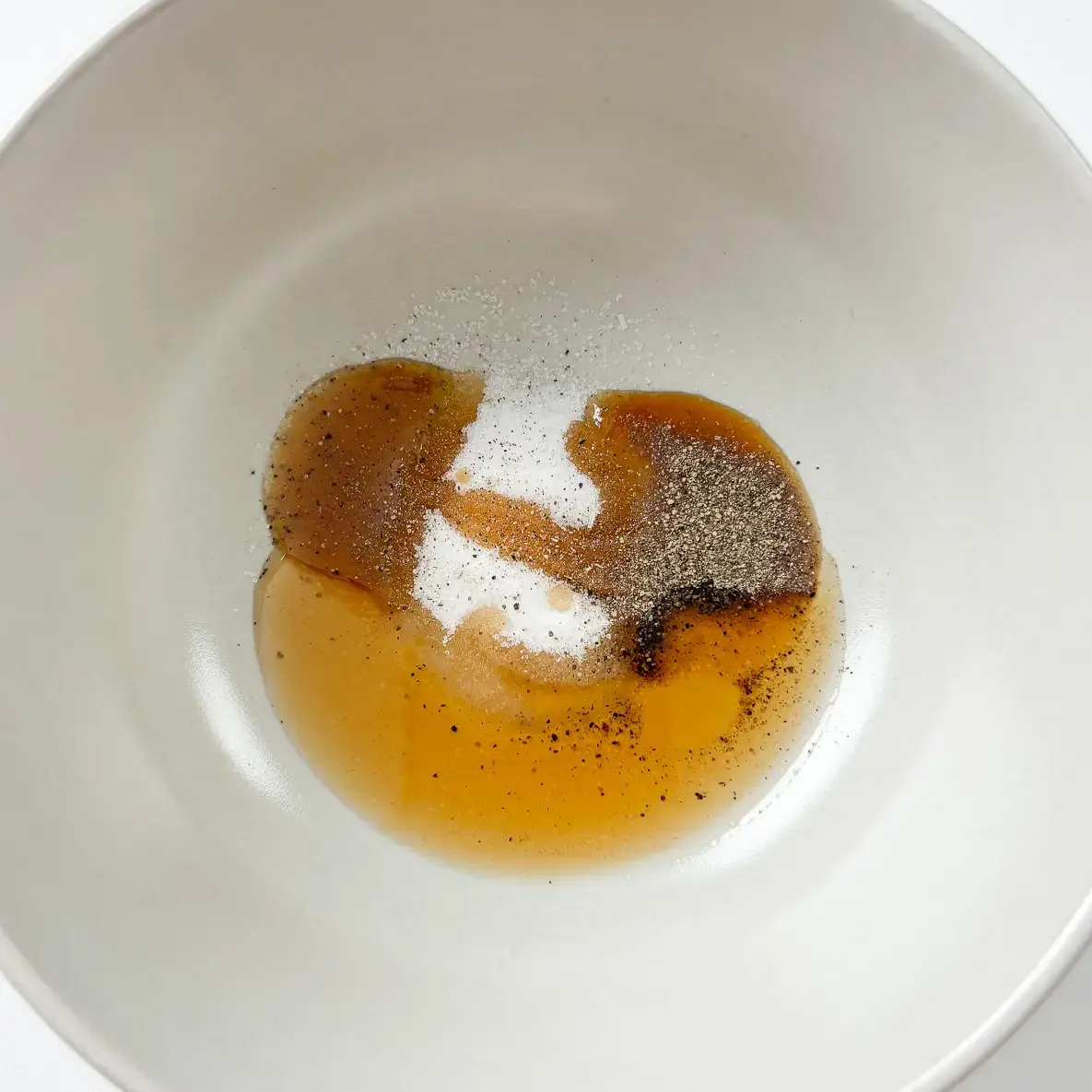
- Plum Syrup (Maesil-cheong): This removes any gamey smell from the meat and adds depth of flavor. The slight acidity also tenderizes the meat. In fact, you could say that the authentic, homemade Korean taste often comes from maesil-cheong.
- MSG: Used to boost umami. It’s not essential, but if you want that exact restaurant flavor, MSG is a must.
- Green Onion and Garlic: Their strong aroma masks any off smells and cuts through the richness of the meat with a fresh, sharp bite.
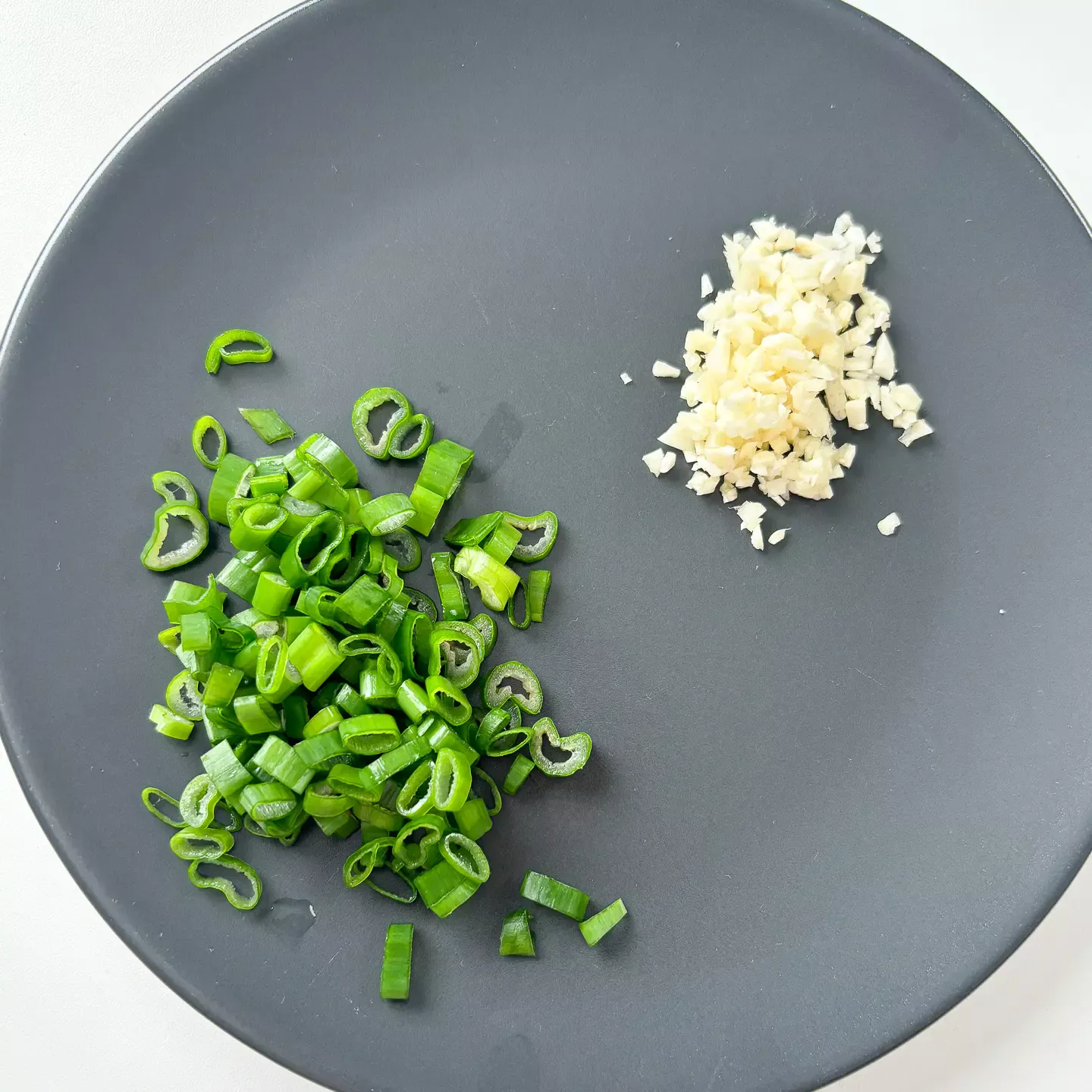
- Rice Paper Chips: Instead of pear, I’m using crispy rice paper chips today to add crunch. This recipe is perfect for those who find the dish too sweet with pear or can’t easily find Asian pears where they live.
- Garnish: Egg yolk and sesame seeds add a nutty richness and make the dish look beautiful.
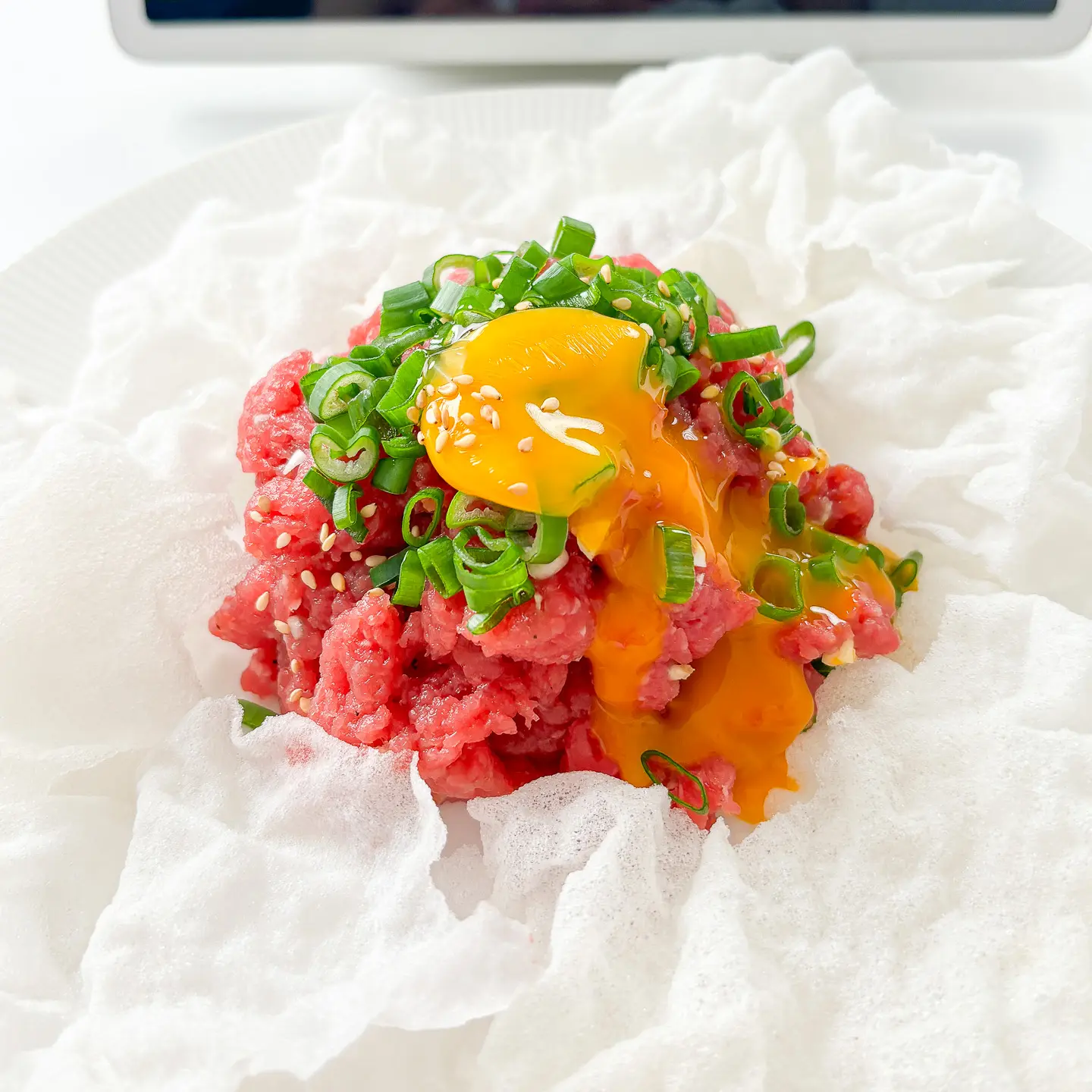
How to Make Rice Paper Chips
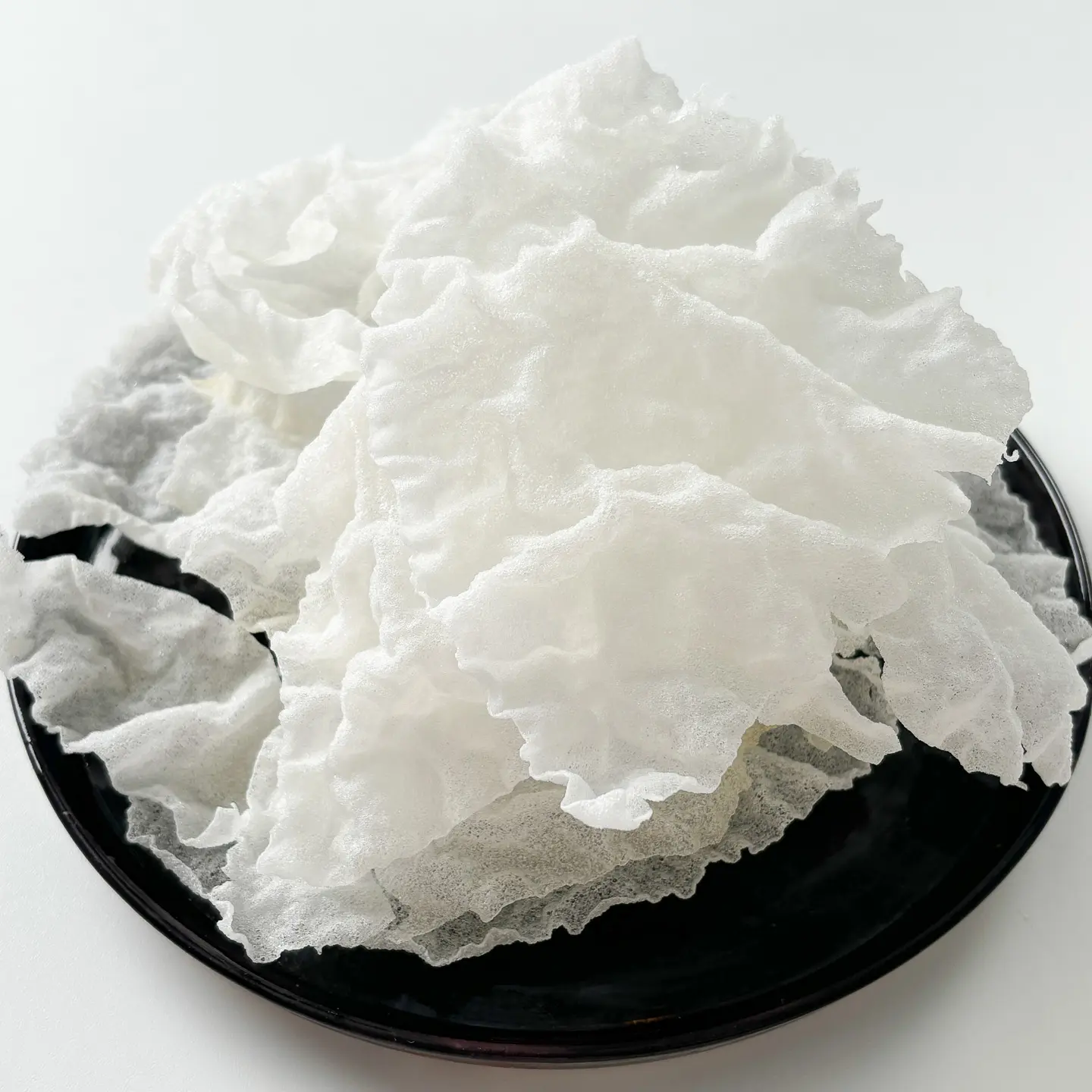
- Pour plenty of oil into a deep frying pan. Using only a little oil can cause the rice paper to stick and burn.
- Heat the oil to about 160°C (320°F). If the oil is too hot, the rice paper will burn easily.
- Put the rice paper into the oil and quickly take it out after about 1 second. Rice paper is very thin and fries instantly. If you wait too long, it will turn yellow and burn, so be sure to remove it as soon as it crisps up and curls.
- Place the fried rice paper on kitchen paper towels to drain excess oil. This helps the chips stay crispy and not greasy.
Perfect Pairings
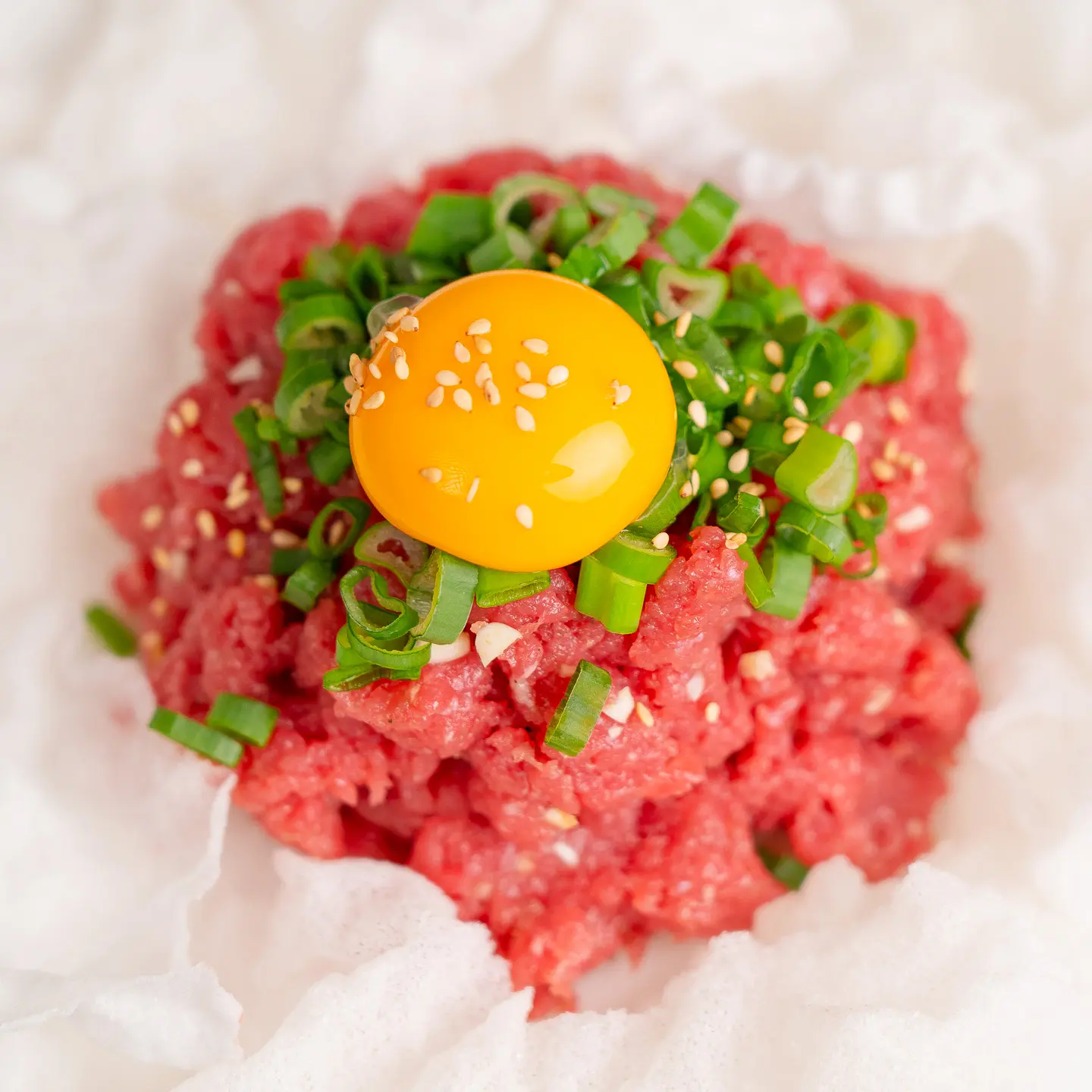
- Seasoned Seaweed (Gim): Put rice on a piece of salty seasoned seaweed, add some yukhoe, and wrap it like a mini kimbap. I personally love adding a bit of gochujang (Korean chili paste) on top. This is great for anyone who doesn’t like rich or greasy flavors.
- Gochujang or Wasabi: If you find the dish too rich, try adding a little gochujang or wasabi on the beef. The spicy and sharp flavors cut through the richness, making it taste even better.
- Soju or Makgeolli: The best drinks to enjoy with yukhoe are soju and makgeolli. Soju has a clean, crisp taste that pairs beautifully with the dish. Makgeolli is also a great choice, and many traditional makgeolli bars serve yukhoe as a popular snack because the two complement each other perfectly.
Get Ingredients
- Deep Wok Pan: https://amzn.to/3DQgIPu (US), https://amzn.to/4hmr6w3 (DE), https://amzn.to/42f3uVG (NL), https://amzn.to/3RcZnmR (UK)
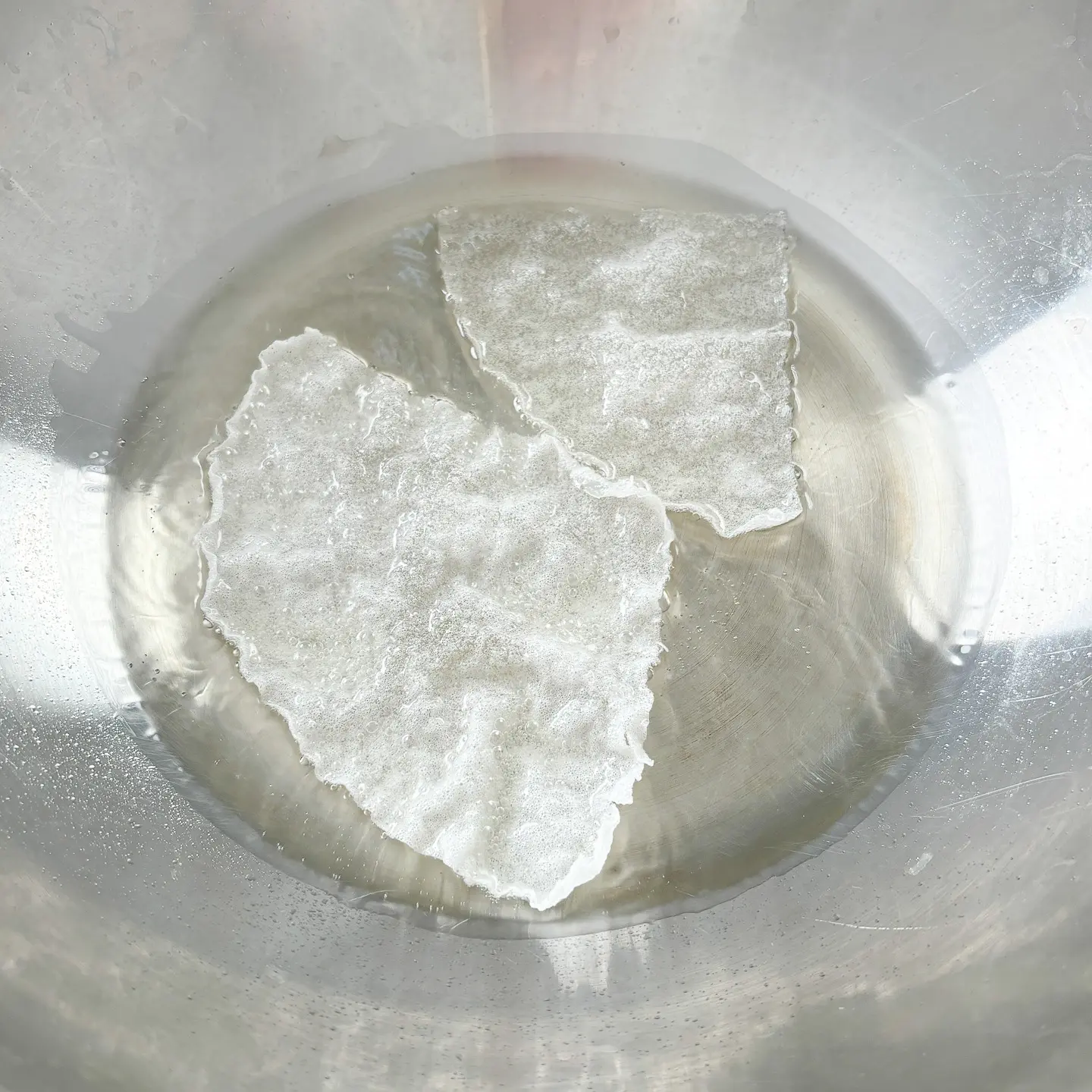
- Plum Syrup: Maesil-cheong adds a subtle sourness, enhancing the umami and fragrance of the dish, giving it a deeper flavor.
- MSG: https://amzn.to/42UIz9D (US), https://amzn.to/3EQoRUp (UK), https://amzn.to/4jQqO1S (DE), https://amzn.to/44P27Pb (NL, BE)
- Rice Paper: https://amzn.to/4jbh3uI (US), https://amzn.to/43l5zyB (UK), https://amzn.to/43f6zG1 (DE), https://amzn.to/4mkwHGG (NL, BE)
- Sesame oil: https://amzn.to/3QCZIyE (US), https://amzn.to/43fg5cn (DE), https://amzn.to/4bdP8Ys (NL)
- Sesame Seeds: https://amzn.to/3D85aXg (US), https://amzn.to/3EQVBwt (DE), https://amzn.to/3D7C6iD (NL)
Disclosure: Blonde Kimchi is part of the Amazon Services LLC Associates Program, an affiliate advertising program that allows websites to earn advertising fees by linking to Amazon.com and promoting products.
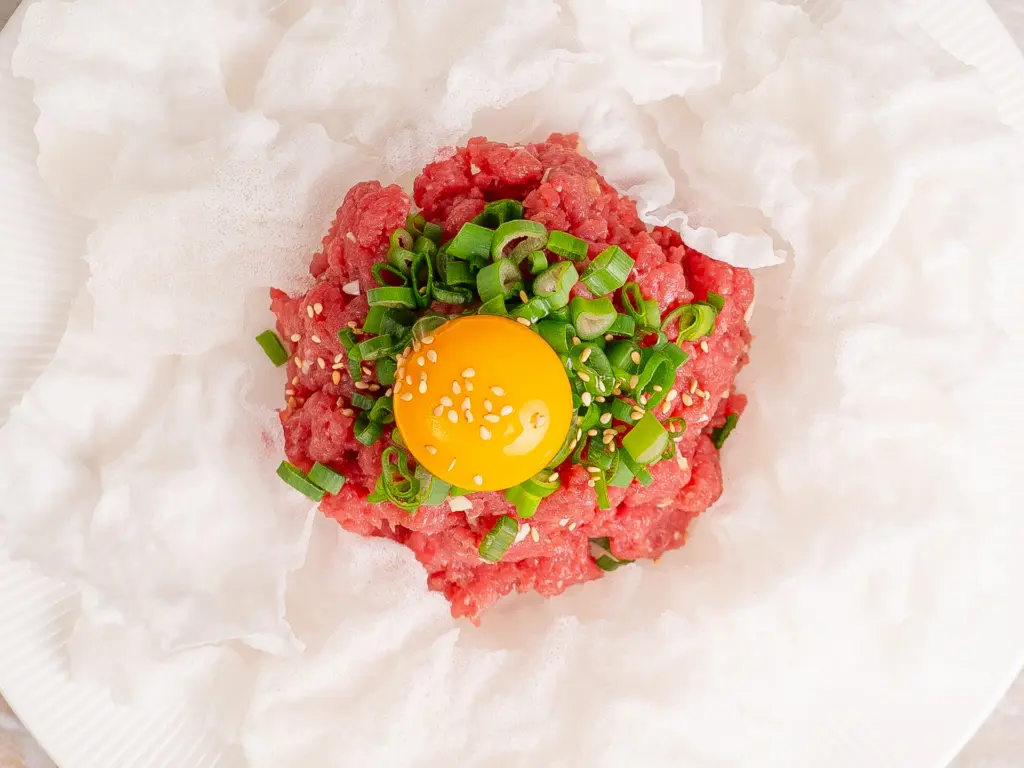
Yukhoe with Rice Paper Chips – Korean Beef Tartare
Equipment
Ingredients
Beef
- 250 g ground beef
Seasoning Sauce
- 1 tbsp sugar
- 0.5 tbsp plum extract
- 0.5 tbsp salt
- 1 pinch MSG
- 0.5 tbsp minced garlic
- 2 tbsp sesame oil
- 0.5 tsp black pepper
Toppings & Sides
- 1/3 stalk green onion (green part only)
- 1 pinch sesame seeds
- 1 egg yolk
- 3 sheets rice paper
Instructions
- Pat the ground beef dry using paper towels to remove any excess blood.
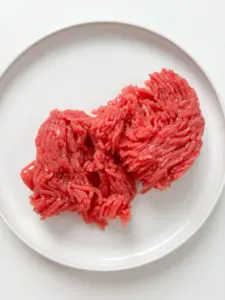
- In a bowl, mix the beef with all the seasoning ingredients until well combined.
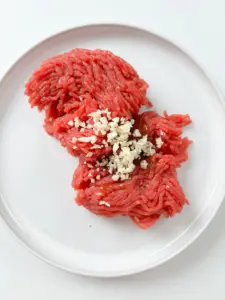
- Cut each rice paper sheet into 4 equal pieces (quarters).
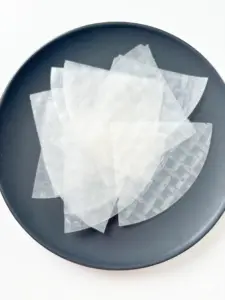
- Heat oil to 160°C (320°F) and fry the rice paper until crispy. Set aside on a paper towel.
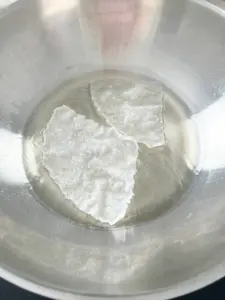
- Finely chop the green part of the scallion.
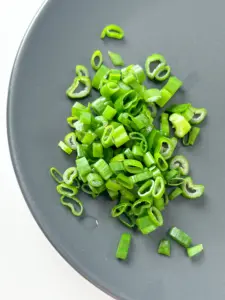
- Plate the seasoned beef in a serving dish.
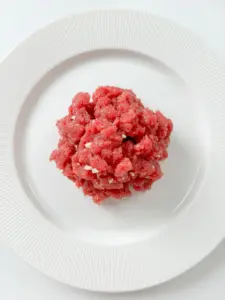
- Top with chopped scallion.
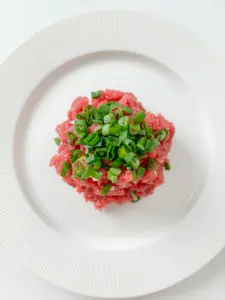
- Add the egg yolk on top and sprinkle with sesame seeds.
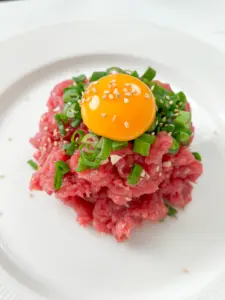
- Arrange the crispy rice paper chips around the yukhoe.
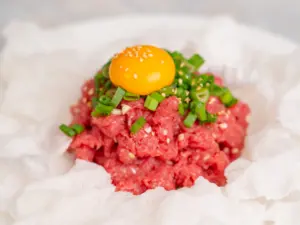
Yukhoe with Rice Paper Chips 육회 & 라이스페이퍼 칩
- Jal meokgetseumnida! 잘 먹겠습니다!
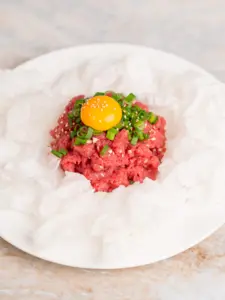
- Before eating, pop the egg yolk and mix well with the beef.
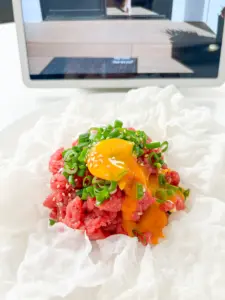
- Scoop the yukhoe onto the rice paper chips and enjoy!
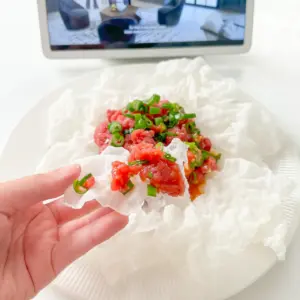

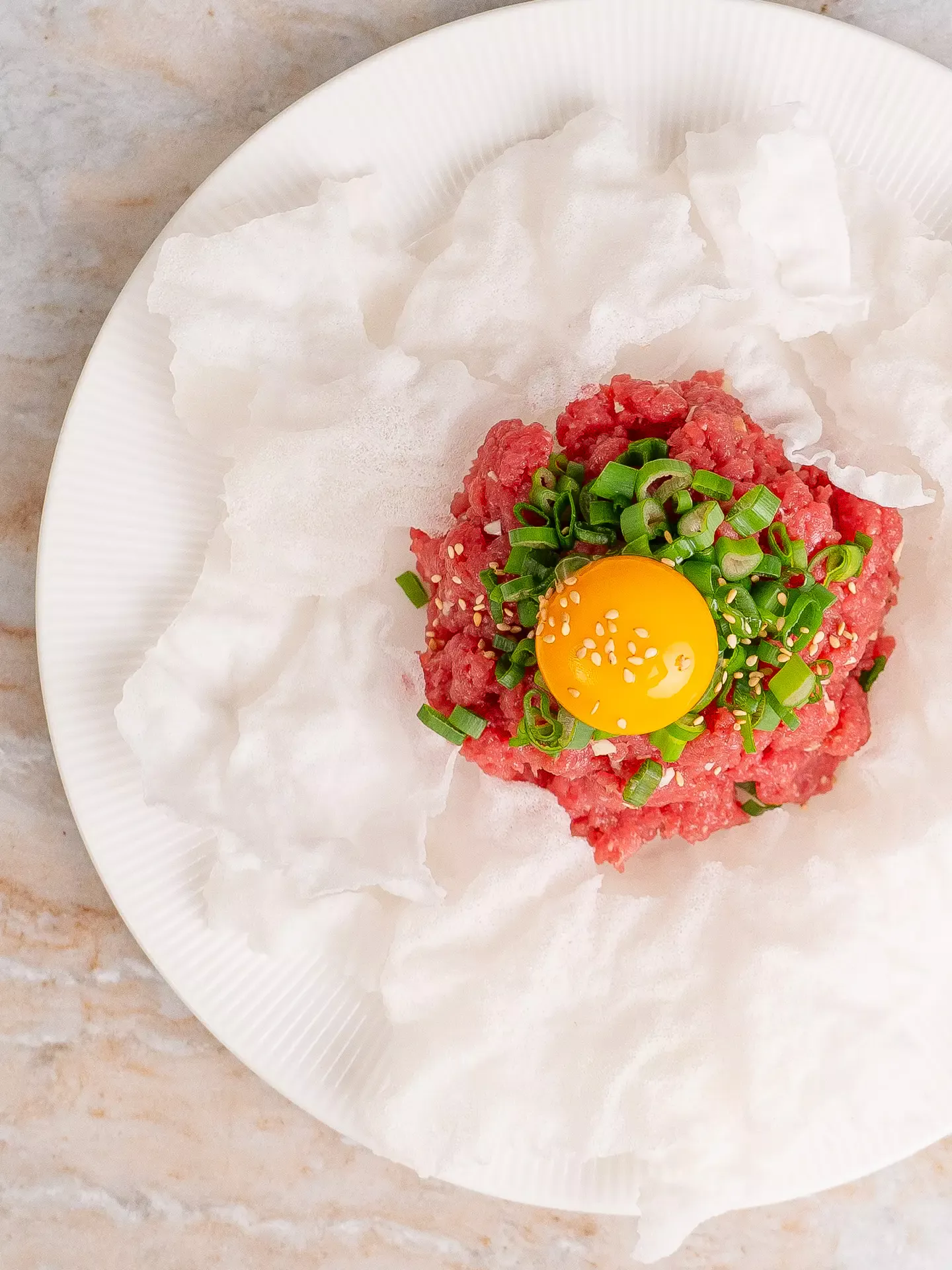
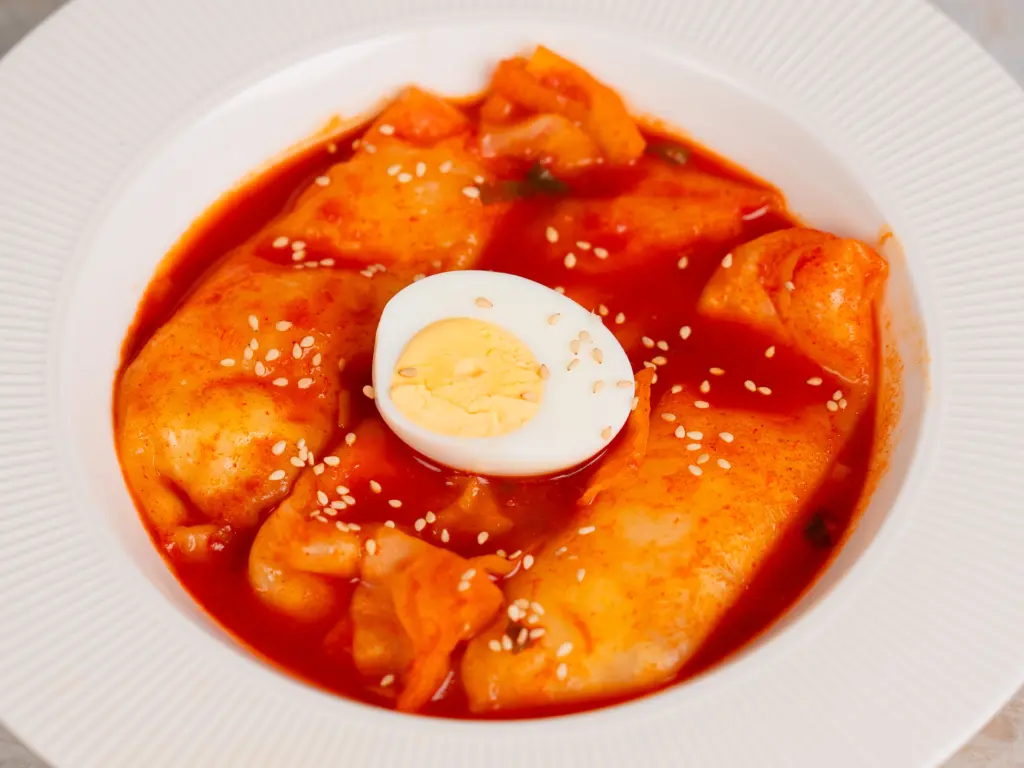
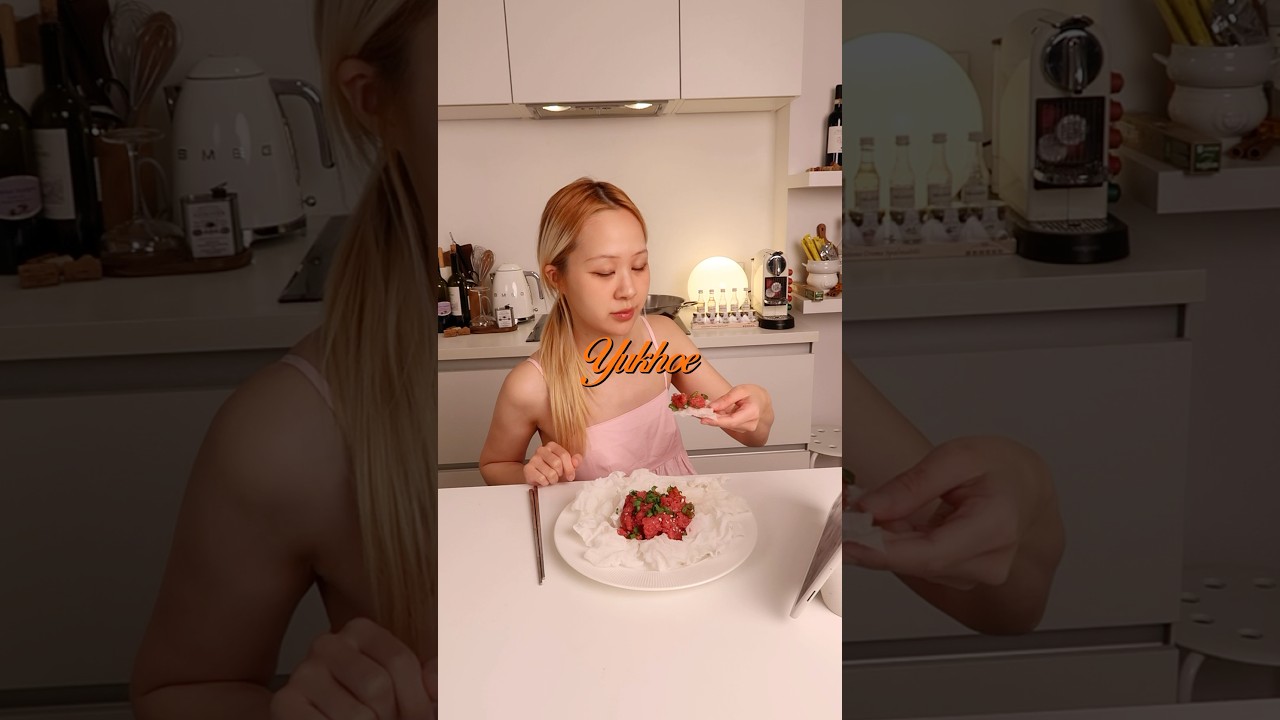





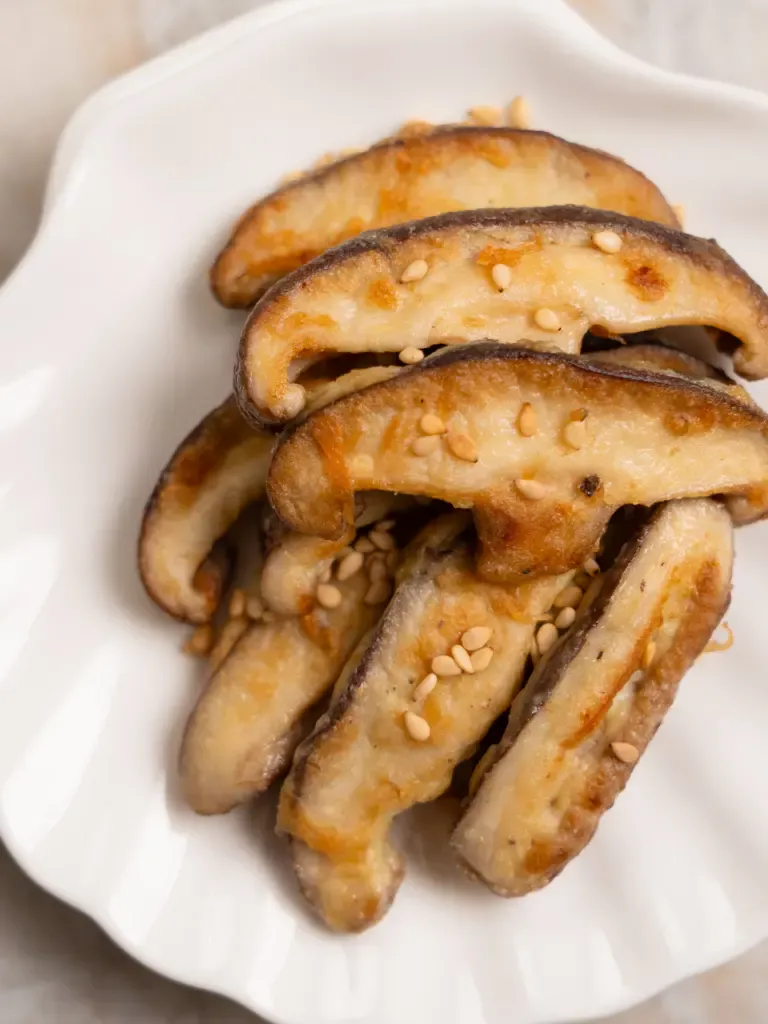
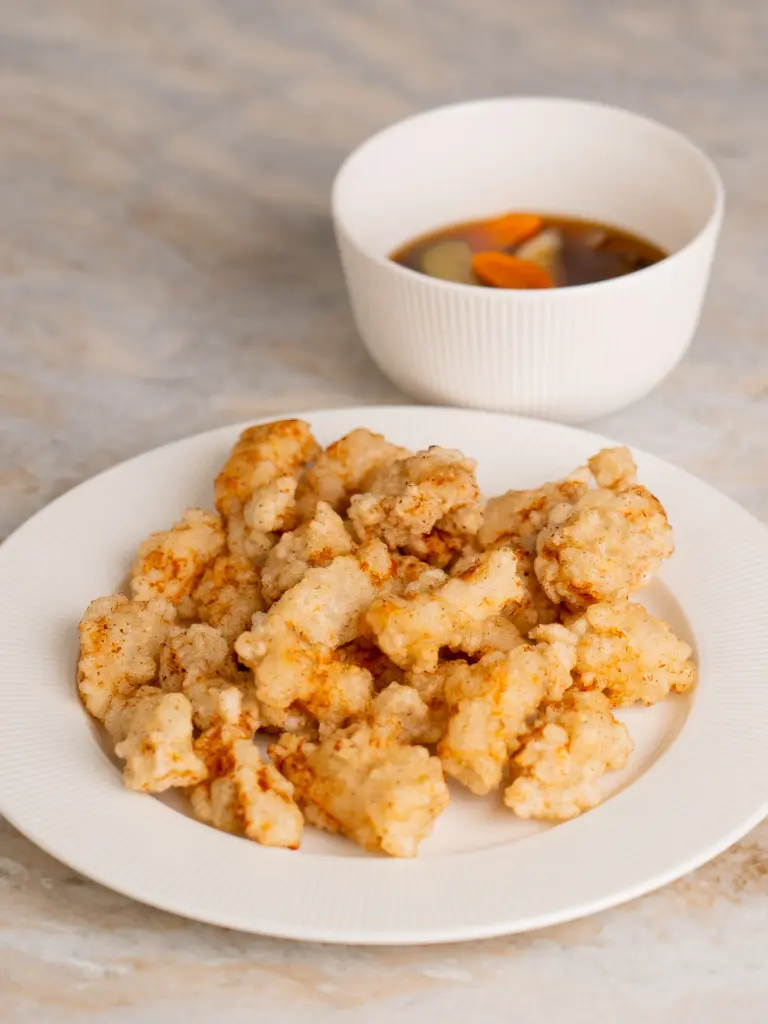
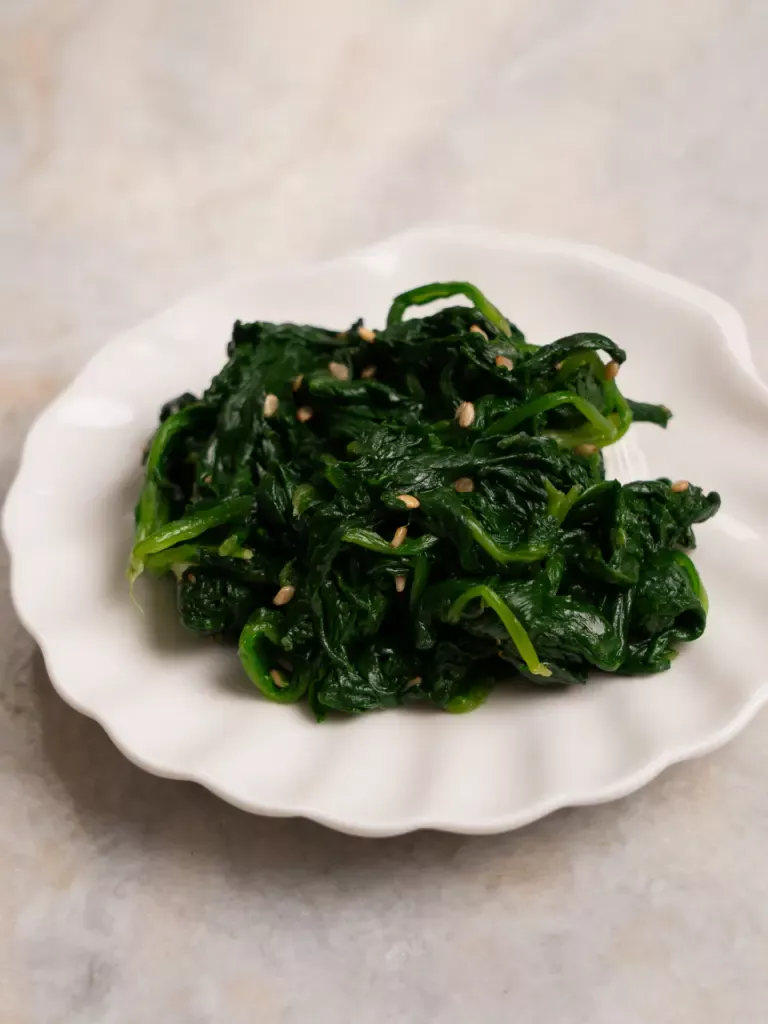
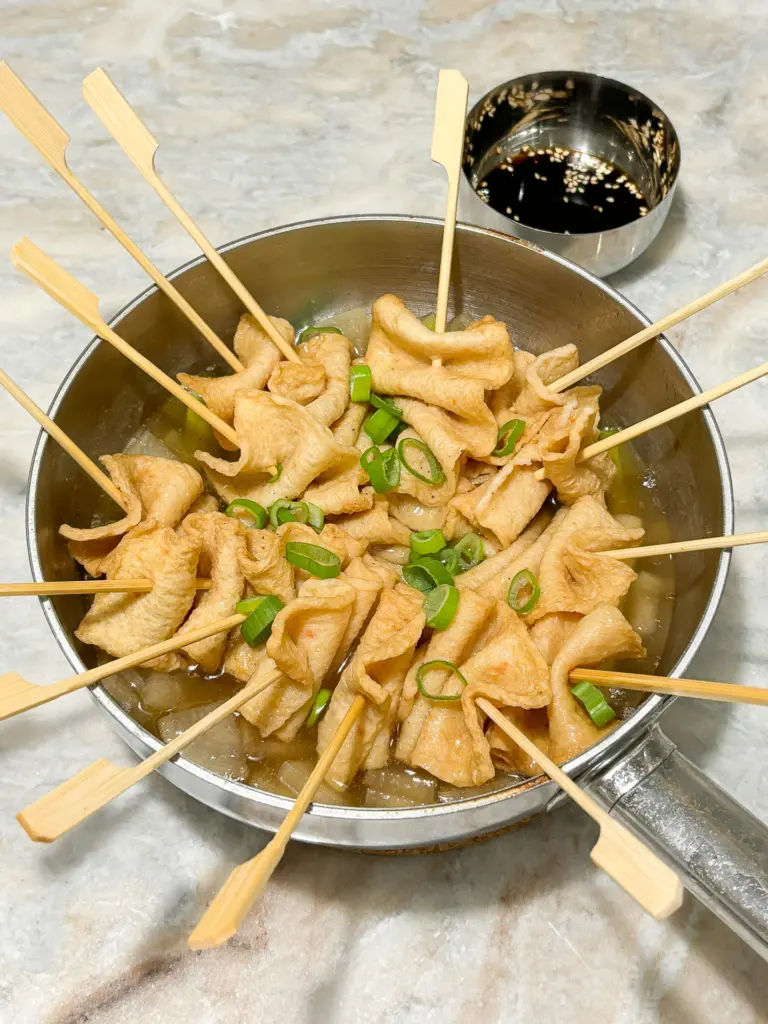
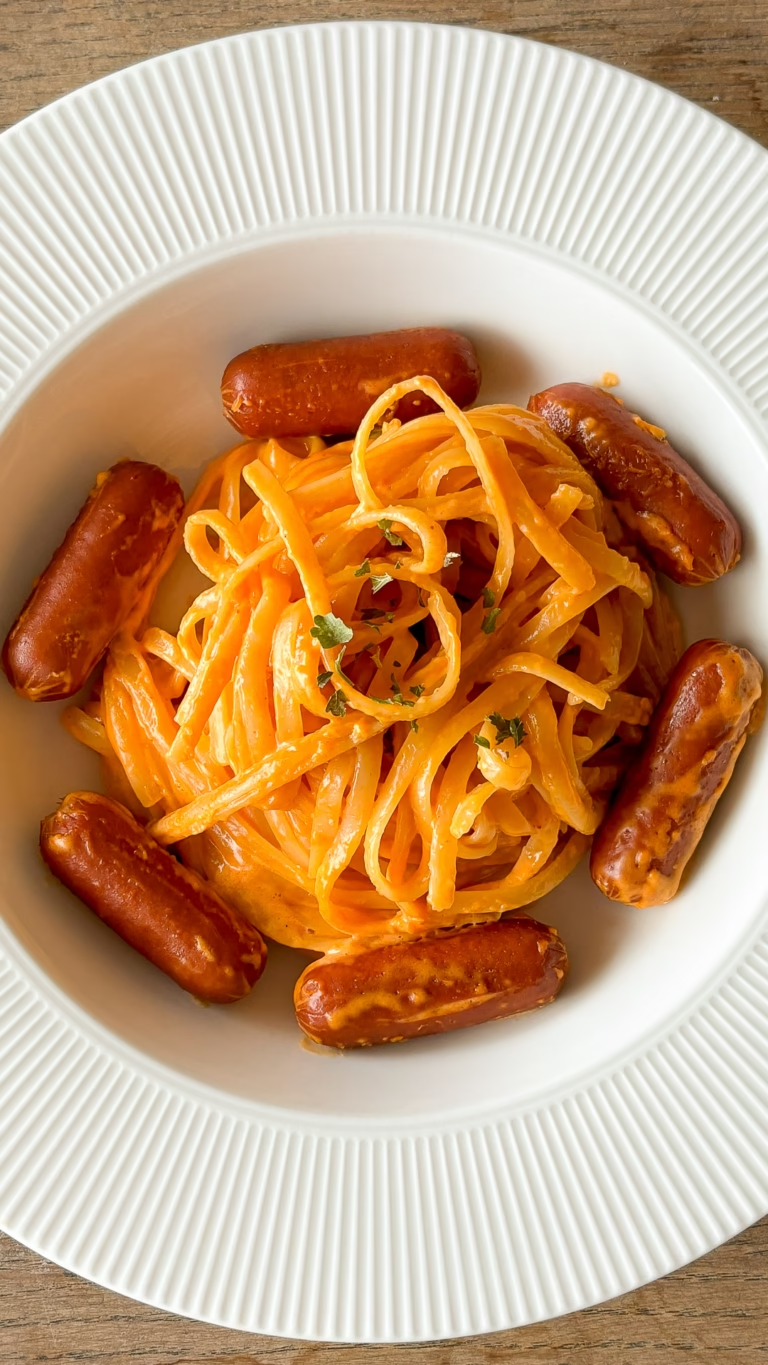
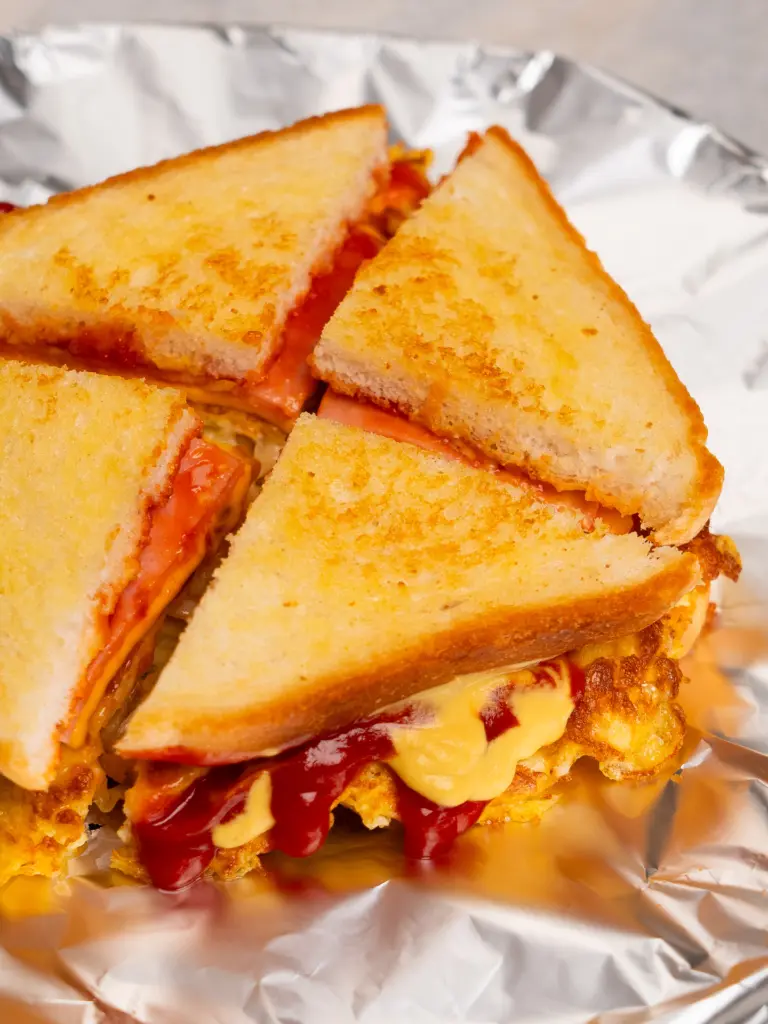
Tried this yukhoe and loved it! The rice paper chips were so crispy and fun—felt just like eating out in Seoul. Will make again for sure!